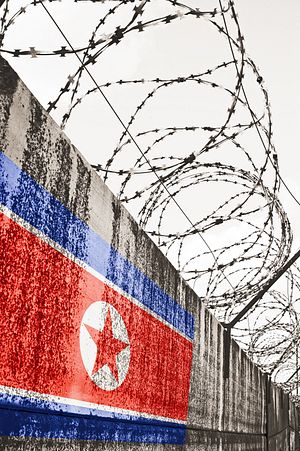The U.S. and Chinese special representatives for North Korean policy are meeting in the U.S. this week. Glyn Davies is hosting his Chinese counterpart Wu Dawei for a series of discussions in New York City and Washington DC. Meetings took place in New York Monday and Tuesday, with discussions expected to wrap up in DC on Friday, according to the U.S. State Department.
The ongoing talks over North Korea come after Pyongyang threatened to carry out a “new form” of nuclear test. The statement from North Korea tied its threat to condemnation of its recent missile tests from the UN Security Council. Pyongyang fired two mid-range ballistic missiles in late March of this year, a move that the United States called “a troubling and provocative escalation.” For its part, North Korea said the missile tests were themselves a response to provocations from the U.S. and South Korea, namely, their bilateral annual military exercises recently conducted on the Korean Peninsula. Meanwhile, two rudimentary North Korean drones crashed in South Korean territory in early April.
China has been watching the rise in Korean tensions with concern. On Tuesday, Foreign Ministry Spokesperson Hua Chunying fielded a general question on the Korean Peninsula, possibly as a way to provide an official Chinese statement on the issue while Wu is in the United States. “To safeguard peace and stability of the Korean Peninsula and Northeast Asia and push forward denuclearization serves the common interests of all parties concerned,” Hua said. In this context, China denounced both “joint military drills and the threat of nuclear tests,” effectively laying equal blame on North Korea and the U.S.-South Korea alliance.
Hua also made it clear several times in her brief statement what China sees as the solution: China encourages “all parties to hold peace talks.” China has been specifically pushing for a return to the Six Party Talks, a negotiation framework involving China, Japan, Russia, South Korea, the U.S. and North Korea. Accordingly, Chinese officials have been busy of late talking with their counterparts. Glyn Davies was in Beijing in January for talks with Wu Dawei and other Chinese officials. Vice Foreign Minister Liu Zhenmin traveled to Pyongyang and Seoul in February, and Wu Dawei made his own visit to Pyongyang in March. A few days later, China hosted Choe Son-hui, North Korea’s deputy chief to the Six Party Talks. And last week, Wu Dawei welcomed his South Korean counterpart, Hwang Joon-kook, to Beijing.
If these efforts have made any headway, it’s been minimal. In fact, North Korea launched two Rodong-class missiles while Choe was in Beijing, undermining any conciliatory messages Choe might have been carrying. At the same time, a diplomatic source told Yonhap News Agency that there has been little progress on reopening the Six Party Talks “as North Korea shows no signs of abandoning its nuclear program.” The U.S. has made it clear it will not consider a return to the now-defunct negotiating platform unless North Korea takes concrete steps to end its nuclear program.
With regards to the latest round of discussions, the U.S. State Department said in a statement that the talks between Davies and Wu so far have been “productive.” “The United States and China agree on the fundamental importance of a denuclearized North Korea,” the statement said. However, the U.S. and China have always agreed on this basic point — and yet there’s been no progress in actually denuclearizing North Korea. Recently, there has been speculation that South Korea and the U.S. might be willing to loosen the preconditions for the Six Party Talks. However, it remains unclear if North Korea will accept any preconditions at all.
Over at 38 North, Jeffrey Lewis of the Monterey Institute of International Studies writes that North Korea’s nuclear program may be approaching a tipping point in terms of the amount of fissile materials it has acquired. This in turn could lead to a sharp upswing in the number of nuclear tests, coupled with more rapid development of Pyongyang’s nuclear program. “The current rate of one nuclear test every three or four years is unpleasant, but manageable … What if North Korea conducts a nuclear test, or even two, on an annual basis?” Indeed, if North Korea does make good on its threat to conduct another nuclear test, it would be the first time Pyongyang has done so in consecutive years (the only previous tests were held in 2006 and 2009).
U.S. President Barack Obama will head to South Korea and Japan as part of his Asia tour later this month. The recent flurry of diplomatic activity may be an attempt to come up with a united strategy for dealing with North Korea in advance of Obama’s arrival. The U.S. and its allies will likely be able to present a united front in response to Pyongyang’s next steps — the question is whether that position will also be palatable enough (or whether North Korea’s provocations will be dire enough) for China to join in.

































